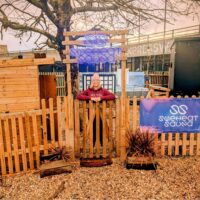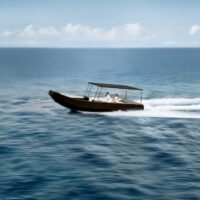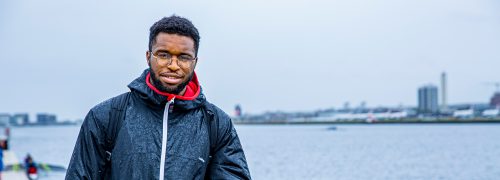
People
Dock Tales: Tyrone Ferguson
Recently selected to undertake lifeboat training with Atlantic Pacific International Rescue, Engineering and Business student Tyrone is new to experiencing the possibilities of the water in the Royal Docks, but he’s keen to seize all the opportunities. Here's Tyrone with his Dock Tale...
““Man overboard!” I never thought I’d be hearing those words but then I never thought I’d be driving a boat either! I’m a sporty person but it’s only recently that I’ve gone from land sports to water activities. I tried white water rafting and kayaking on a school trip to Wales and really enjoyed it but I didn’t know you could do activities like that here in London.
I’ve always enjoyed looking at the water. It can do so much but it’s just one thing, and that’s what’s amazing about it.
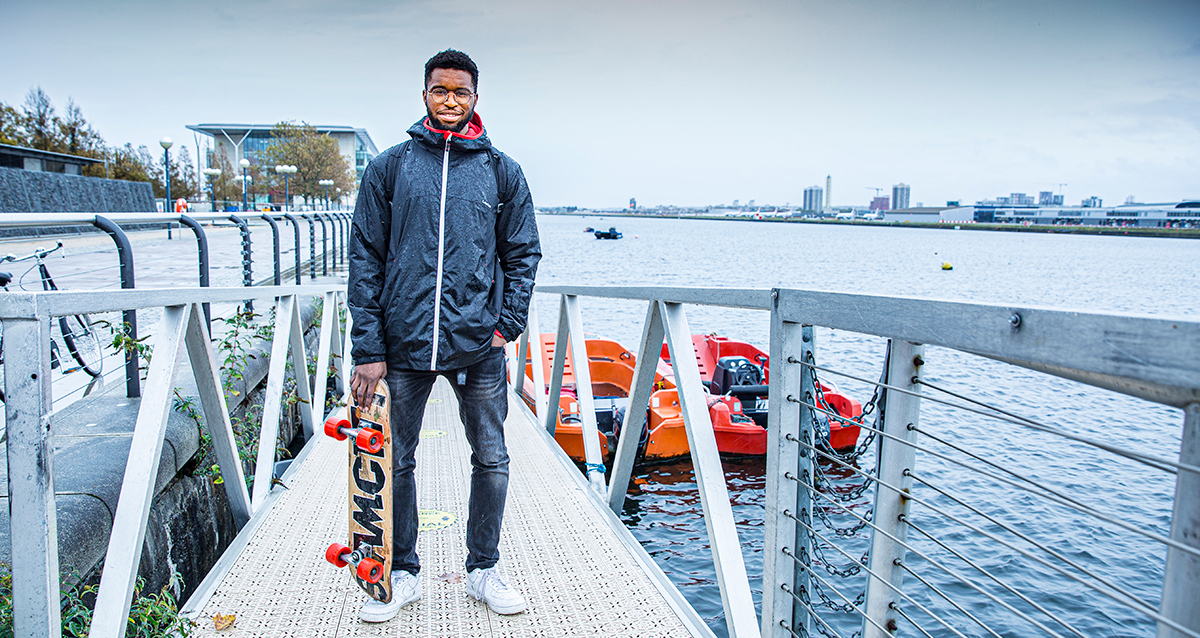
The wonder of the water
"I knew of the water at the docks but I didn’t come here until I became a student at UTC. When I first started I didn’t know anyone. I would get my food at lunchtime and sit outside on my own and take in the view. I’ve always enjoyed looking at the water. It’s just beautiful. It can do so much but it’s just one thing, and that’s what’s amazing about it. Now though I’ve got lots of friends. In my group talking about the water comes up quite often but mostly we just skate up and down the docks.
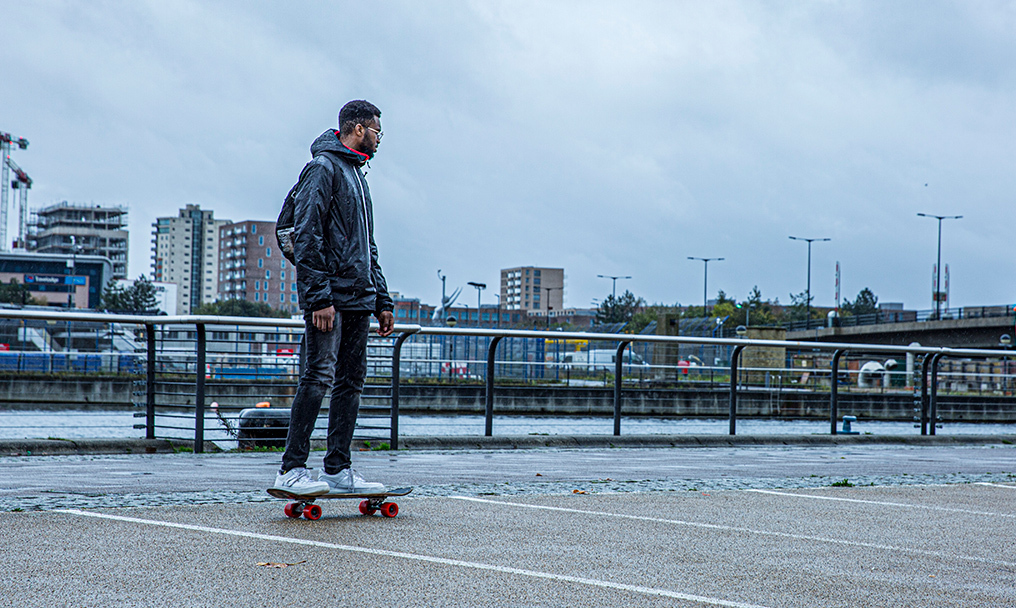
Good things come to those who skate
One day Jonny, Head of Year 13 came up to me and said he wanted to start a rowing team and enter us into competitions and he wanted me to put the team together. I’d never tried rowing before and neither had anyone else. We created a team made up of years 12 and 13.
It was an amazing achievement because the other competitors were from private schools”
We started training on Tuesdays on the rowing machines. We had to do 500m to warm up, our distance for the day, and another 500m to cool down. I never thought I’d be taking part in a rowing championship but after a couple of months of training, we took part in our first tournament, the National Junior Indoor Rowing Championships (NJIRC) 2020. We had to do a team relay race where you did individual rowing then had to get people off the machine and switch places without stopping.
We came in the top 10 which was an amazing achievement because the other competitors were from private schools or colleges that already do rowing competitively. I find this disappointing and think they should implement rowing in all schools. It’s a good way to keep fit and if you don’t like all types of PE, it’s something a bit different.
When they then told us ‘you’re going to drive the boat’ I was like ‘huh?’ - it made my stomach churn!
Although I’ve not yet been able to row on the water I’ve been on it thanks to the ‘Introduction to Search and Rescue’ course me and some other students from the college did with Atlantic Pacific. Robin Jenkins from the team took us out on a boat and it was the first time any of us had been on the water.
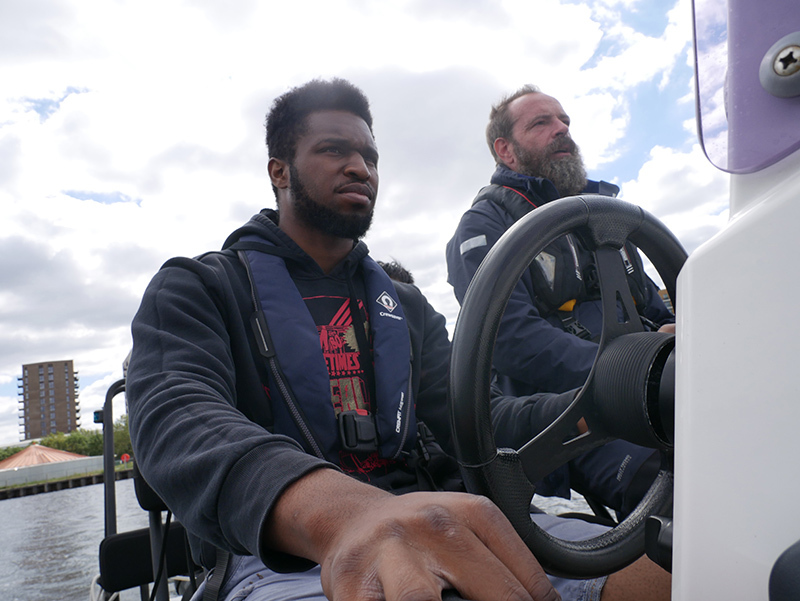
‘Oh buoy!’ Tyrone gets to grips with the steering
I was excited and I looking forward to it but when they then told us ‘you’re going to drive the boat’ I was like ‘huh?’ - it made my stomach churn! But once I learnt it was an amazing experience.
Learning the ropes
The boat fit two at the front, two in the middle and there was one large seat at the back for the casualty. The purpose was to show us what it would be like to be part of a lifeboat crew, what we’d have to know, and learn to save someone but also if we were in a situation where we needed to be saved. They taught us casualty care, CPR and also showed us a special lifeboat tent. It’s a tent that floats on the water and you have one in case your boat crashes.
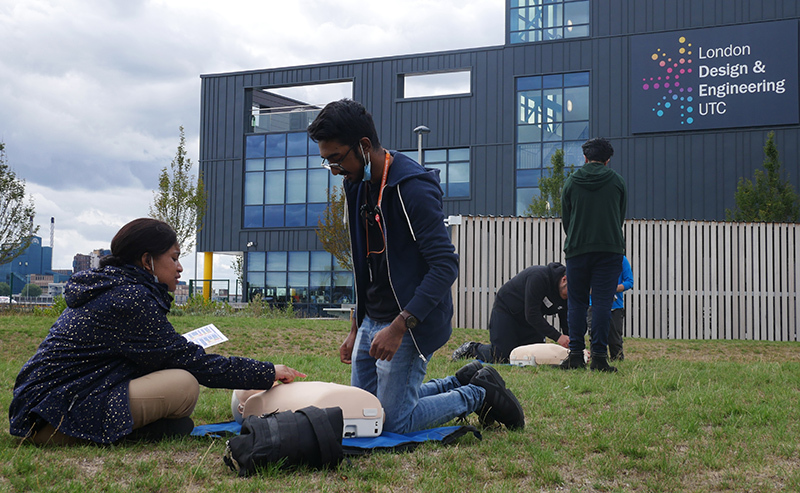
Life-long learning, students undertook the programme as an extra-curricular activity on top of their studies
When we first got on the boat there were quite a lot of nervous people worried about what would happen if they crashed it when it was their turn to drive it. I don’t drive a car so riding a boat for me was very exciting. It has a steering wheel and a throttle that you have to lift to go faster, you put it into neutral to stop, and then down to reverse. I enjoyed learning how to do this.
But then we had to do a rescue which is when they shouted ‘man overboard.’ It was a scenario where we had to rescue a dummy. So while we were driving the boat we had to turn back and approach it slowly. It involved being very precise although one person did accidentally drive over the dummy and we had to find a way to rescue it from under the boat, without getting in the water. The number one instruction we had was never get in the water, even if you’re the strongest swimmer if you’re rescuing someone you need to stay on the boat. One of the biggest problems they have is that when people are being rescued they panic and try and climb into the boat too quickly before the crew is ready for them and sometimes they grab onto the crew and pull them in. The course is over now but we’re still working with Atlantic Pacific. We’re creating a game to raise awareness about the environment of the water.
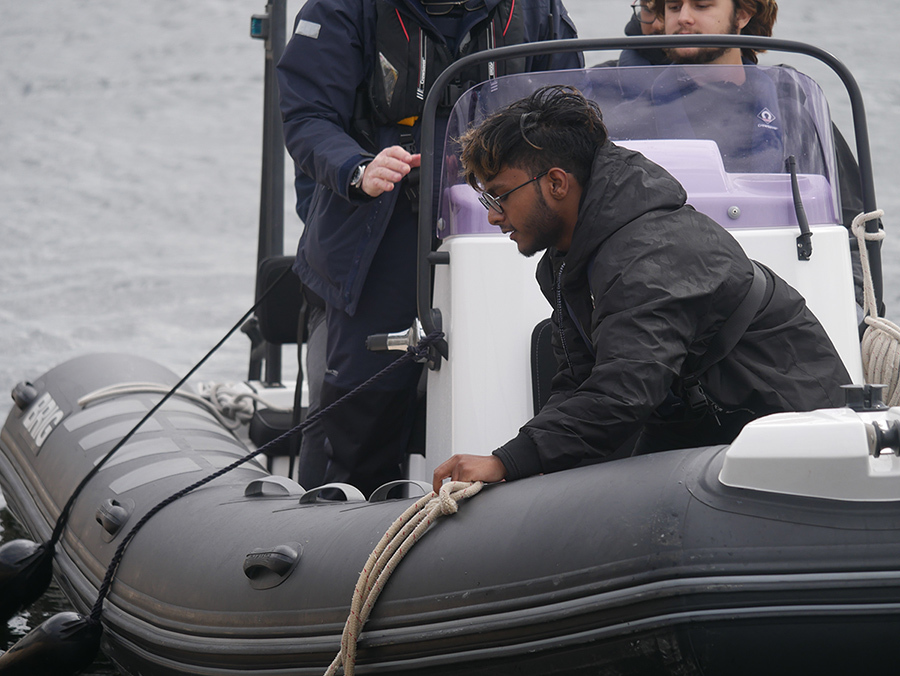
Keep Calm and Rescue! Students from UTC learning lifeboat skills with Atlantic Pacific
Having a chance to go on the water and learn more about it has made me want to volunteer as a lifeguard in the future. At the moment I’m looking at either doing an apprenticeship or studying Civil Engineering at a university outside of London, but hopefully somewhere where there is water so I can keep practicing.
I think that every young person should have the opportunity to learn about water safety just in case something bad happens, even if you think you’ll never go on it. I still need to learn how to swim, it’s on my list when I have time, and one day I would definitely like to try swimming in the docks too.”
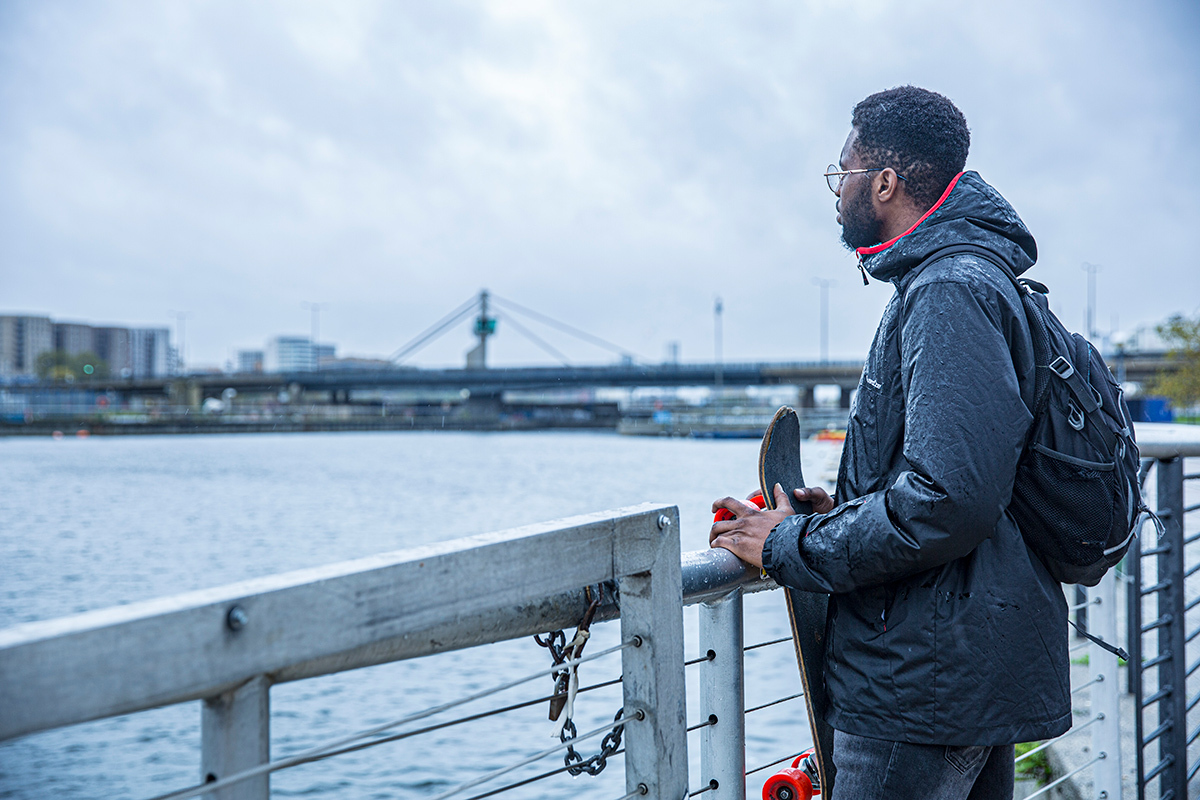
Daydreaming about the docks, Tyrone is looking forward to the day he can row on the water
You can hear more from Tyrone and the work being undertaken by NGO Atlantic Pacific International Rescue at our Dock Tales online event on November 30th.
Read more interviews from the Dock Tales project
Interview by Momtaz Begum-Hossain
Portrait shots of Tyrone by Emma Nathan
Additional images courtesy of UTC
